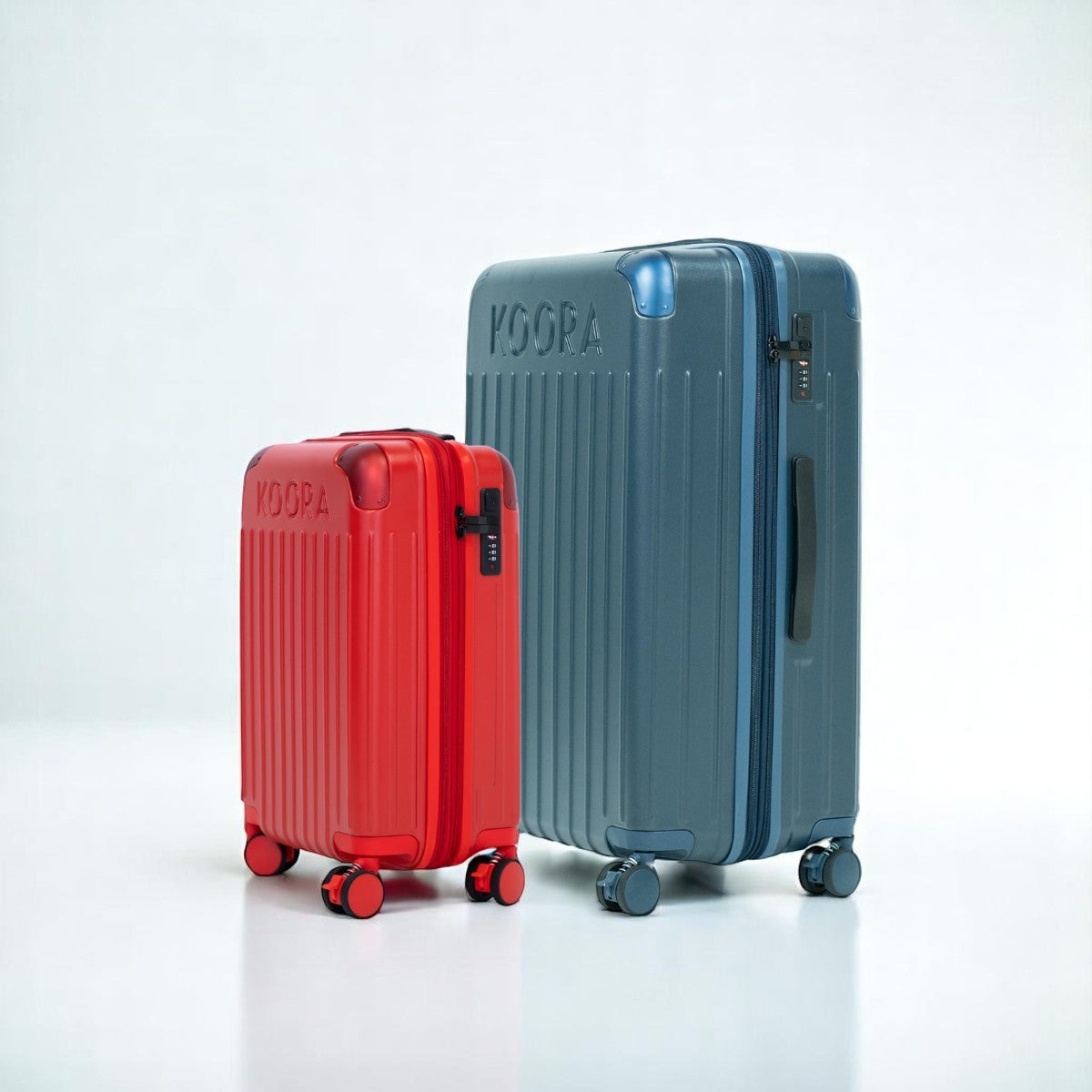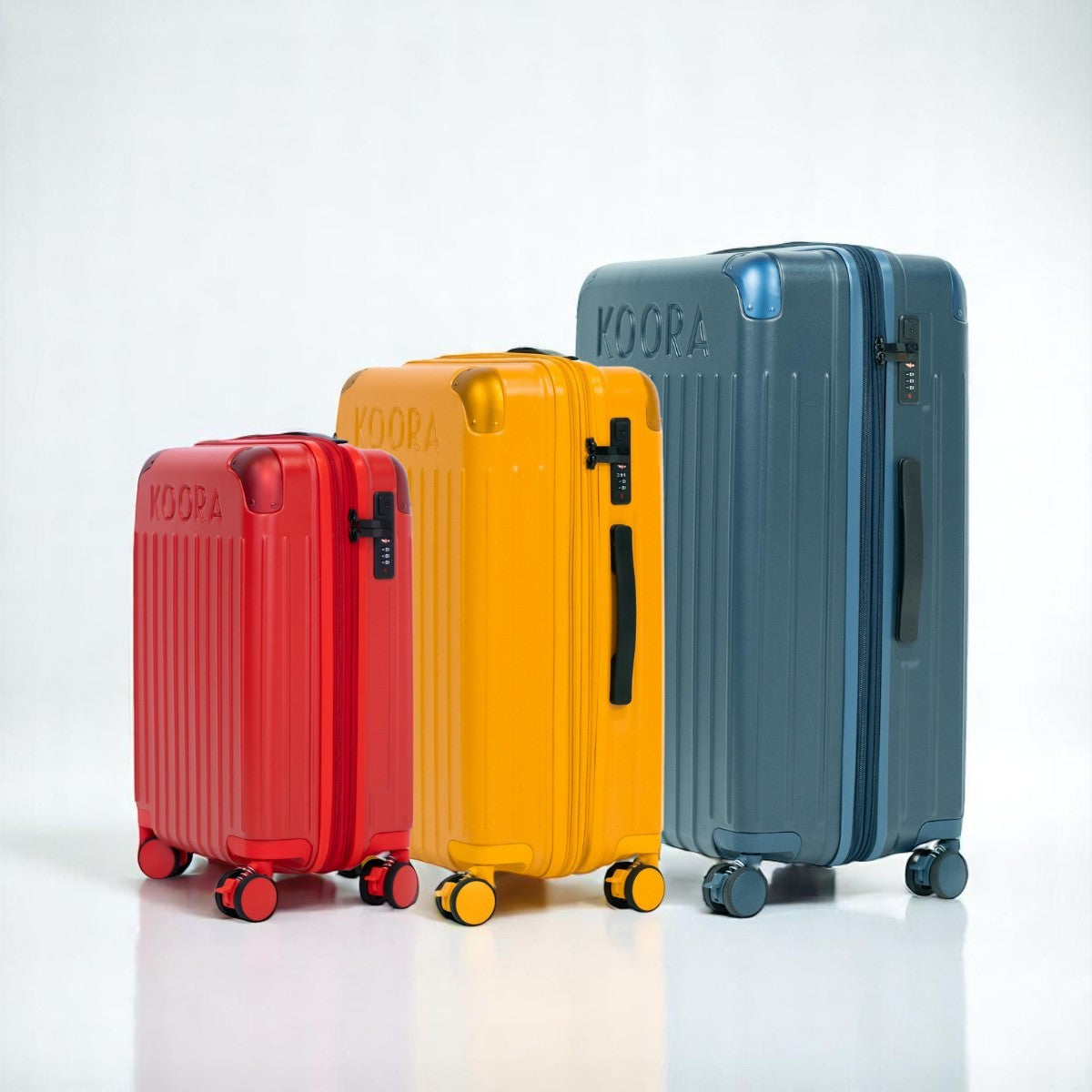
Beyond Bamboo: Exploring Ocean Plastic in Modern Luggage Design
Bamboo has, over the years, represented the golden standard of sustainability in product design. It was fast-growing, biodegradable, and so impressively versatile that it was just the material you would have a room full of furniture, from accessories to your entire fashion collection. However, with checked-in luggage, such a product that is supposed to cope with years of abuse in the airports, pressurisation, and uncontrolled conditions, bamboo is not the magic bullet.

There is a new kid in town, namely recycled ocean plastic. The combination of weather resistance, durability, strength, easily made by using moulding by hand, environmentally effective in the most positive sense, and lightweight, ocean plastic is fast becoming part of contemporary luggage design. Instead of lessening our reliance on the use of virgin materials, it goes beyond that, and instead, it takes the waste that has accumulated in our oceans and vigorously recycles it into a newer form that will itself last.
Our focus on eco-conscious travel design at Koora has brought ocean plastic as one of the most promising materials for future collections to our attention. Why not take a closer look at the reasons why it is more than a trend but a revolution in travel?
Why Bamboo Isn’t Enough
The fact that bamboo is renewable and grows rapidly has been touted as one of the reasons why it makes an attractive material to use in sustainable product design. But as soon as you enter the realm of international travel- checked luggage, high temperatures, changes in pressure levels, annoying treatment and manhandling, bamboo begins to underperform.
To begin with, bamboo does not have the form of structural strength and resistance that it requires to deal with high-impact forces. The items that need to withstand the stress of being lugged around on conveyor belts or violently jammed in the cargo holds of airplanes deserve more of the kind of strength that bamboo does not readily possess. Secondly, bamboo is sensitive to moisture, causing it to swell, crack, or warp in humid or wet environments, which is a major setback to luggage that can be subjected to wet weather, hot weather or sea breezes. Lastly, the bamboo is denser than the current polymers, thus making it less viable in developing lightweight but high-performance equipment.
This is where the ocean plastic that has been recycled comes in different roles, not as an alternative, but as a better solution.
What Is Ocean Plastic, Really?
Ocean plastic isn’t a single type of material. It refers to a range of plastics recovered from oceans, beaches, rivers, or coastal communities where plastic waste is likely to end up in the sea. This includes items like discarded fishing nets (often referred to as "ghost gear"), plastic bottles, containers, and other high-density plastic waste.
After collection, the plastic is cleaned, sorted, broken down into flakes, and reprocessed into usable raw materials. These are then spun into fibres or moulded into components like hard shells, zippers, linings, and trims for luggage.
The result is a durable, lightweight, and water-resistant material that not only performs well in the real world but also carries an emotional story of regeneration—from waste to utility, from pollution to product.
Why Ocean Plastic Works for Checked-In Luggage
Checked-in luggage needs to be built like armour. It must survive drops, crushing weight, collisions, and varying climates—all while protecting your belongings and looking good. Ocean plastic, surprisingly, excels in all these areas.

First, it’s incredibly strong. The reprocessing techniques used to transform marine plastics ensure the end product has the tensile strength and flexibility required to resist impact damage. At the same time, it is lighter than many traditional materials, including virgin polycarbonate and aluminium, which helps travellers stay under weight limits and enjoy easier mobility.
Second, ocean plastic is naturally resistant to moisture, salt, and UV radiation, making it ideal for both tropical and high-altitude travel. Unlike bamboo, it won’t warp, mould, or deteriorate under pressure.
Third, it’s versatile. Ocean plastic can be used to create sleek, minimalist exteriors or woven into durable inner linings. It takes colour well, can be texturised for grip, and doesn’t compromise on style.
Finally, it’s recyclable at the end of its life cycle, contributing to a circular economy rather than a landfill.
The Environmental Power of Reuse
The fact that ocean plastic is used in luggage manufacturing is not only about the performance of materials, but it is rather about a meaningful change. Each year, plastic waste is brought into the ocean in tons. The estimates indicate that it may find more plastic than fish (by weight) in the sea by 2050 in case trends persist.
By purchasing luggage made of ocean plastic, the customers directly contribute to coastal clean-ups and stimulate the demand for the product, which will give an incentive to collect the material properly and reuse it. It is not even passive sustainability but active regeneration.
The game strategy fits perfectly well within that of Koora. We do not think in short solutions or greenwashing. We are working toward creating a luggage ecosystem that will be sustainable and one that will not only be waste-free but will help in eliminating the waste that is in the environment.
Koora’s Commitment to Conscious Innovation
Koora bags are made to travel with a purpose. Our collections of hard shells are not only durable but also responsible. Bamboo, cork, and other ecologically friendly materials have served as an inspiration to the industry, but going forward, we are bound to recycled materials that can deliver in a non-compromising manner.
One of the most intriguing things on that path is ocean plastic.
We are already experimenting with the use of shells and the interior features that were produced out of certified ocean-bound plastics that were obtained as a result of responsible sourcing and manufactured following the quality regulations. The bags: These are not just as robust as the conventional polycarbonate bags; they are also smarter, more fluid, and environmentally friendly.
Each Koora bag is manufactured by using ocean plastic minimises the quantity of virgin plastic in the circulation and results in cleaner coasts and water bodies.
More Than a Bag: A Movement
The suitcase is no longer a piece of equipment for a modern traveller. It is a sign of values.
When you are holding a bag of ocean plastic material, you may be saying something small, but it is something very strong: sustainability does not mean only to purchase less, but better. That you are a believer in healing, purpose-driven innovation and not destructive innovation. And you should know that you belong to a trend that is the development of today's problems into a solution of tomorrow.
What to Look for in Ocean Plastic Luggage
If you're ready to make the switch, keep a few things in mind:
-
Transparency matters – Look for brands that share exactly how and where their materials are sourced.
-
Performance-tested design – Ensure the bag is built to withstand travel, not just labelled as eco-friendly.
-
Circularity options – Brands that offer repair services or recycling programs help extend your luggage's lifecycle.
-
Design + durability – You shouldn't have to sacrifice aesthetics or reliability to make a sustainable choice.
Final Thoughts
Ocean plastic is no longer a fad; it is a peek at that future where the very waste we had been handling is used to bring about resilient and gorgeous design.
We are proud to be driving this transformation at Koora. Our future lines combine classic functionality with the latest sustainability, and because of that no one has to choose between eco-friendly and cutting edge anymore.
But even more still, there is more than bamboo, an even greater power that makes a difference that not even bamboo can beat, the power to have a second life to the waste that we get and travel in a better way than ever before, lighter, smarter and in a better way than ever before.



Leave a comment
This site is protected by hCaptcha and the hCaptcha Privacy Policy and Terms of Service apply.